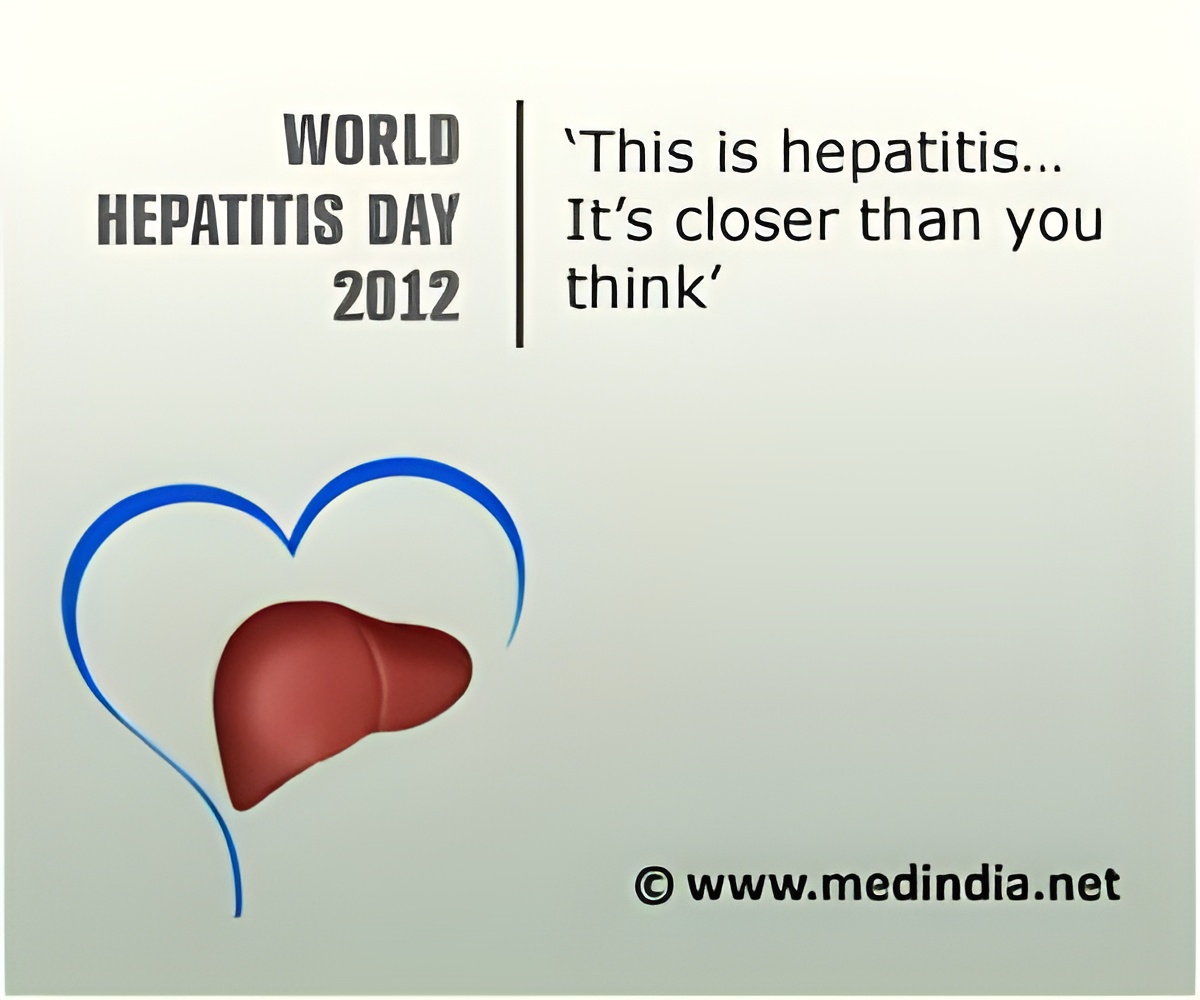Viral hepatitis poses a major global health risk, with approximately 240 million people being chronically infected with the hepatitis –B virus.

• Focusing on screening, control and prevention of viral hepatitis and related diseases.
• Widening hepatitis B vaccine coverage and striving for its inclusion in national immunization programs.
• Coordinating a global response to viral hepatitis.
The theme for World Hepatitis Day- 2012 is ‘This is hepatitis… It’s closer than you think’.
The new slogan hopes to remind people that viral hepatitis is not a far-away phenomenon and that it is closer home than most people would like it to be. The theme also hopes to dissolve the stigma associated with viral hepatitis.
Viral hepatitis poses a major global health risk with approximately 240 million people being chronically infected with the hepatitis–B virus and approximately 150 million people being chronically infected with hepatitis C. Despite its prevalence, and the danger that it poses, the disease remains under- diagnosed and poorly- managed.
Hepatitis B is a viral infection affecting the liver and may cause an acute or a chronic disease. The disease is brought about when a person comes in contact with blood or other body fluids of an infected person. Approximately, two billion people worldwide have been affected by hepatitis B. The hepatitis–B virus is far more potent than the HIV and poses a health hazard for health workers and laboratory staff. Thankfully, Hepatitis B vaccine is now available.
Hepatitis C is an inflammatory disease of the liver caused by the hepatitis C virus. The disease may range from mild to severe and may last a few weeks or a lifetime. If it lasts longer, it may lead to cirrhosis or cancer. The disease is usually transmitted through contact with the blood of an infected person. About 150 million people have chronic hepatitis C and more than 350 000 people die each year from hepatitis C-related liver problems. The disease can be cured with anti viral medications. As of now, no vaccine is available.
Modes of transmission of hepatitis A, B and C-
• Contaminated food /water (hepatitis A)
• Blood / blood product transfusions using unscreened blood
• Medical / dental procedures using inadequately sterilized equipment
• Mother to infant transmission during childbirth
• Sharing needles for drugs
• Sharing straws, notes etc. for snorting drugs such as cocaine
• Sharing toothbrushes, razors or other household articles
• Tattooing / body piercing using unsterilized needles
• Unprotected sex with infected person (hepatitis B)
If you think you may be at risk, do not hesitate to get a blood test done. Getting immunized is the best method of preventing hepatitis B and this has proven effective in 95% of cases. It is always better to deal with the disease right away to avoid complications and to avoid transmission to others.
Source-Medindia















